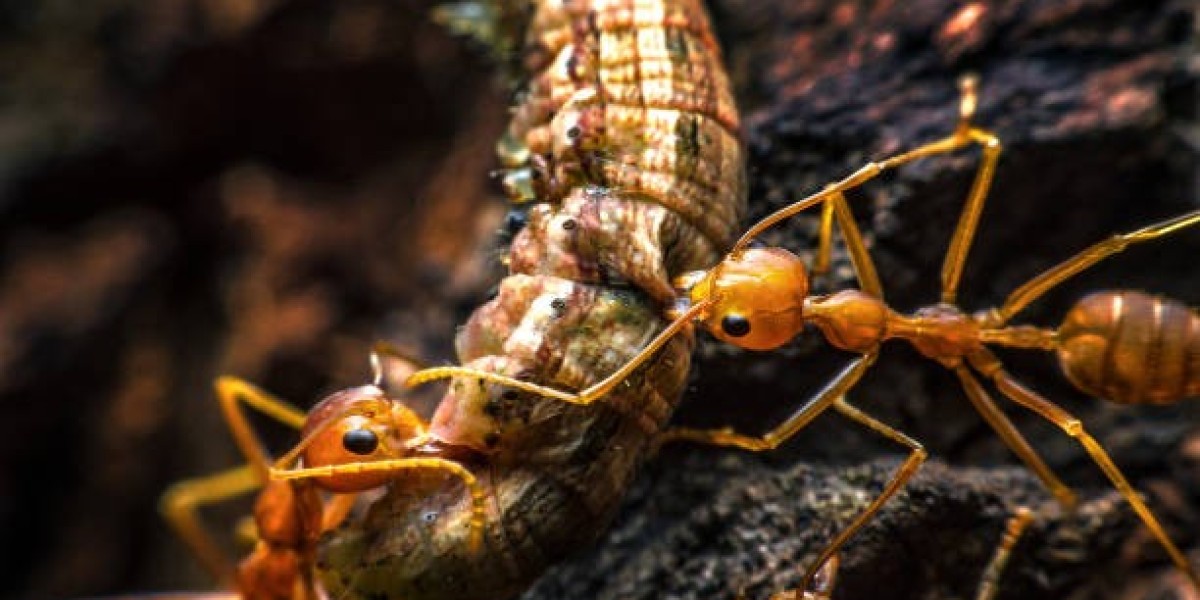Ants are one of the most common pests that people encounter in their homes. While these tiny creatures might seem harmless at first, they can quickly become a nuisance when they invade your space in large numbers. Understanding their behavior, why they invade, and how to manage them effectively is key to keeping your home pest-free. In this article, we’ll cover the basics of ant behavior, how to prevent them from entering your home, and safe methods to manage an infestation.
Why Do Ants Come Inside?
Ants are driven by survival, and their primary goal is to find food and shelter. When they invade your home, it’s typically because they’ve found something enticing, like crumbs on the floor, leftover food, or even pet food. Ants are excellent at communicating with one another through pheromones, which is why you often see a trail of them heading to the same spot.
Ants are also attracted to water sources. Kitchens, bathrooms, and areas with leaky pipes or standing water can serve as inviting spaces for them. Once they establish a source of food or water, they can quickly create colonies and become harder to remove.
Identifying Common Types of Ants
Not all ants are the same, and identifying the type of ants in your home can help you choose the best approach to manage them. Here are some common types:
Sugar Ants: These are tiny ants that are often attracted to sweets and sugary foods.
Carpenter Ants: These ants are larger and can cause structural damage by burrowing into wood to create nests.
Fire Ants: Known for their painful stings, fire ants are aggressive and typically found outdoors but can enter homes if provoked.
Odorous House Ants: These ants emit a foul smell when crushed and are attracted to various food sources.
Understanding which type of ant you’re dealing with is the first step to addressing the problem effectively.
Preventing Ant Infestations
The best way to handle ants is to prevent them from entering your home in the first place. Here are some simple steps you can take to keep them at bay:
Keep Your Home Clean: Ants are drawn to crumbs and spills. Regularly sweep, mop, and wipe down counters to eliminate food sources.
Store Food Properly: Use airtight containers for storing food, especially sugary items, cereals, and snacks.
Seal Entry Points: Check for cracks and gaps around doors, windows, and walls. Use caulk to seal these openings and prevent ants from sneaking in.
Fix Leaks: Repair leaky pipes and faucets, as ants are also attracted to water.
Take Out the Trash Regularly: Dispose of garbage frequently and use sealed trash bins to keep odors contained.
Safe and Effective Ways to Manage Ants
If ants have already made their way into your home, don’t worry—there are several methods to address the issue.
Use Natural Deterrents:
Lemon juice, vinegar, and peppermint oil are natural substances that can repel ants. Spray these around entry points and areas where ants are active.
Coffee grounds can also deter ants when placed near their trails or entry points.
Bait Stations:
Ant baits are a popular and effective solution. Place bait stations near ant trails, and the ants will carry the bait back to their colony, eventually eliminating the problem.Diatomaceous Earth:
This natural powder is safe for humans and pets but deadly to ants. Sprinkle it around ant trails and entry points to disrupt their movements.Call a Professional:
If the infestation is severe, contacting a pest control expert may be the best solution. They can identify the ant species and use targeted treatments to eliminate the colony.
Long-Term Ant Management
Even after you’ve addressed an ant problem, it’s important to remain vigilant to prevent future infestations. Regular maintenance, such as keeping your home clean and inspecting for potential entry points, will go a long way in keeping ants away.
Additionally, keep an eye on your yard. Ants often start outdoors before moving inside. Trim bushes and trees that touch your house, as they can act as bridges for ants to enter. Keeping outdoor garbage bins secure and free of food debris is also helpful.
When to Seek Help
Sometimes, ants can be persistent despite your best efforts. If you notice that your attempts aren’t working, or if you’re dealing with a more serious problem like carpenter ants causing structural damage, it’s time to seek professional help. Pest control experts have access to specialized tools and treatments that are not available to the general public.
Taking quick action can save you time, money, and frustration in the long run.
Final Thoughts
Ants might be small, but their presence can create big problems if left unchecked. By understanding their behavior and taking proactive steps to prevent and manage infestations, you can keep your home safe and comfortable.
If you ever find yourself facing an issue with ants, remember that ants control is not about completely eradicating them from the environment but managing them effectively within your space. By combining natural methods with proper hygiene and, if needed, professional assistance, you can ensure that your home remains a place where humans—not ants—feel most at home.










